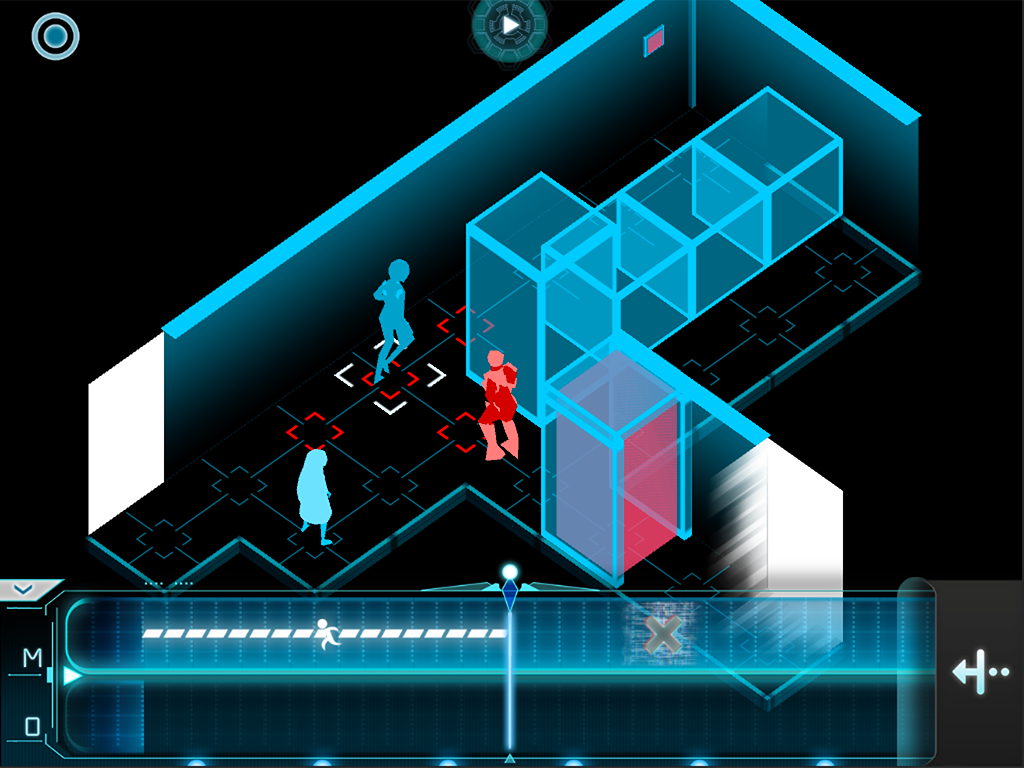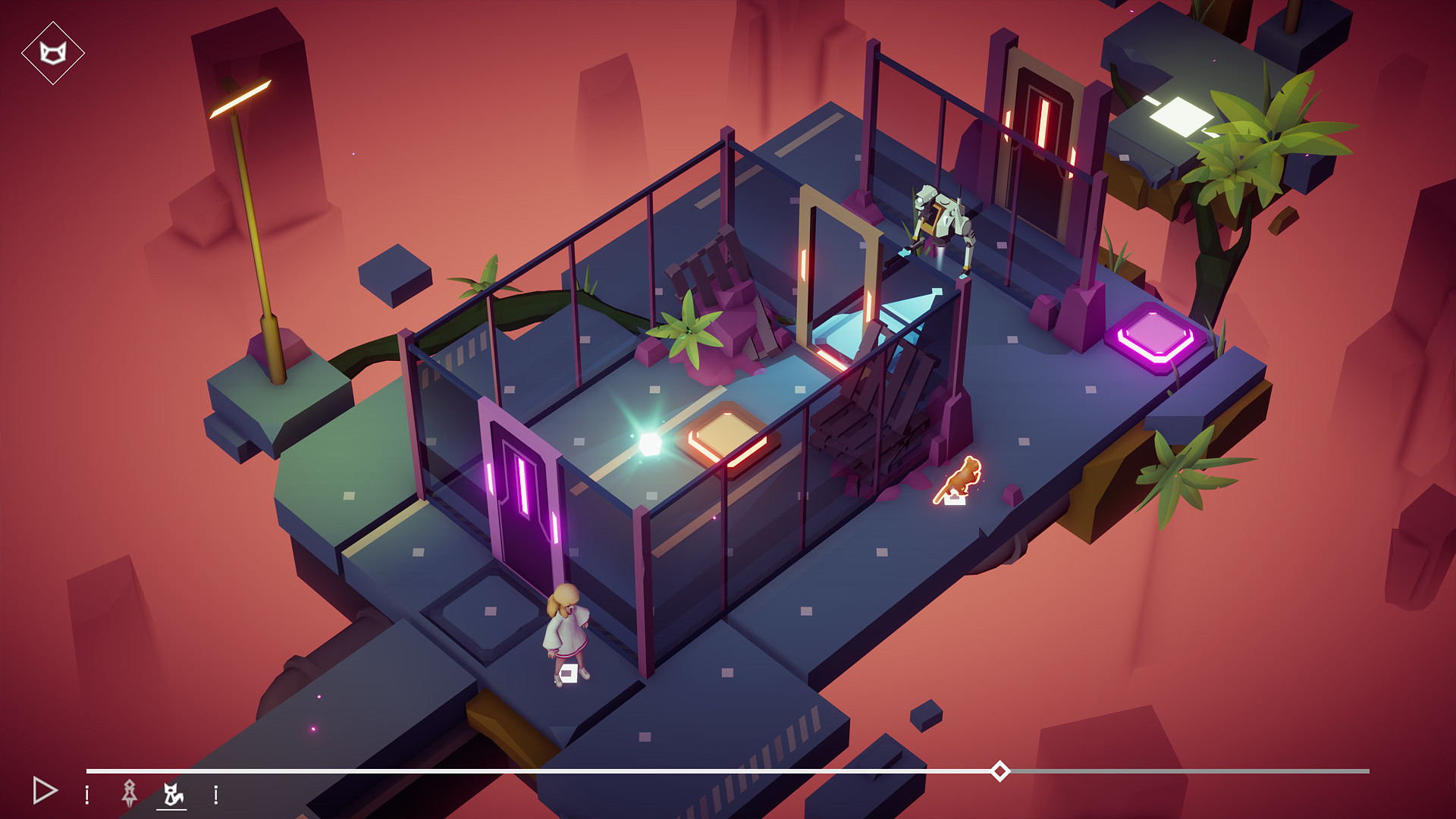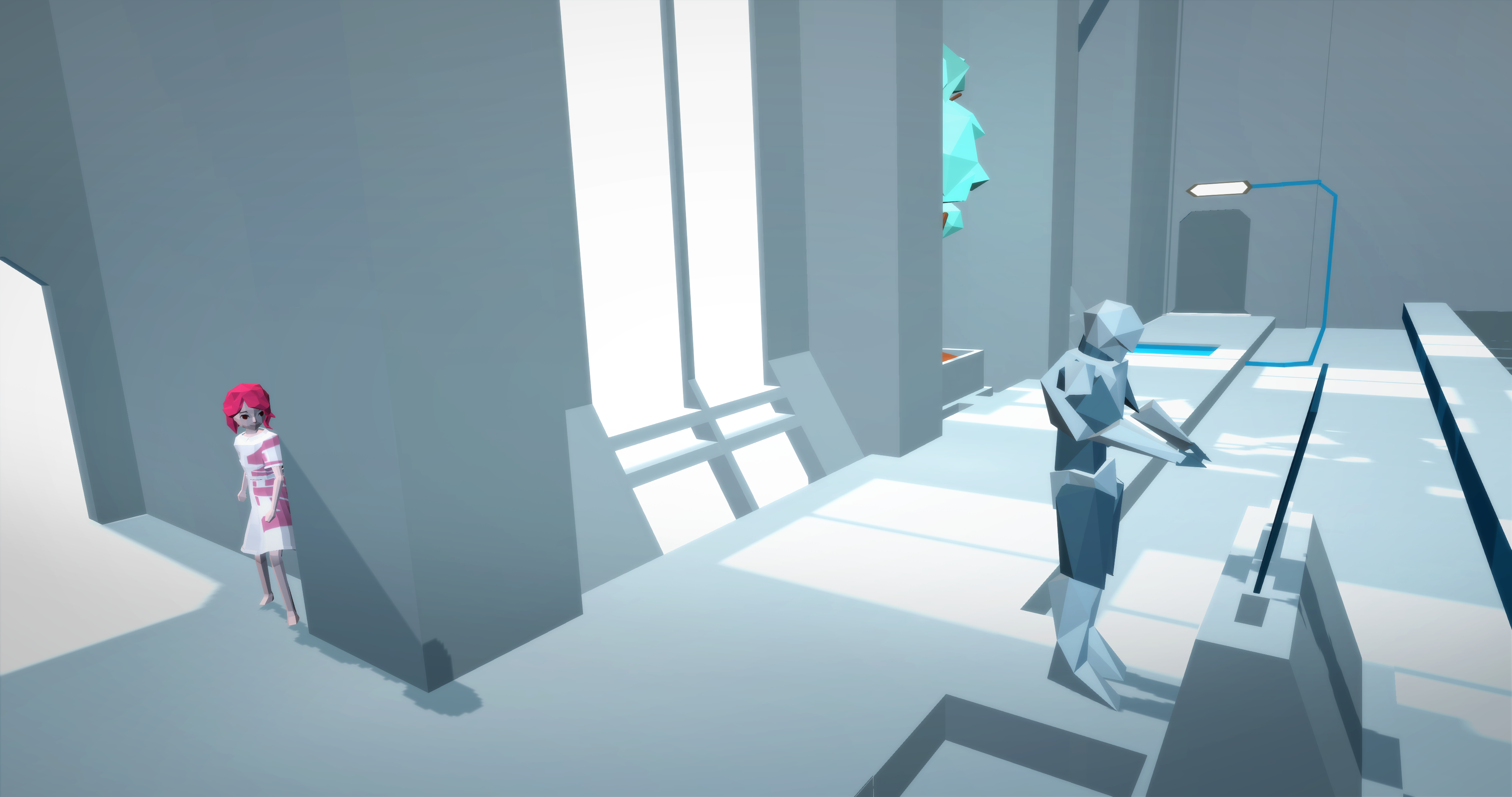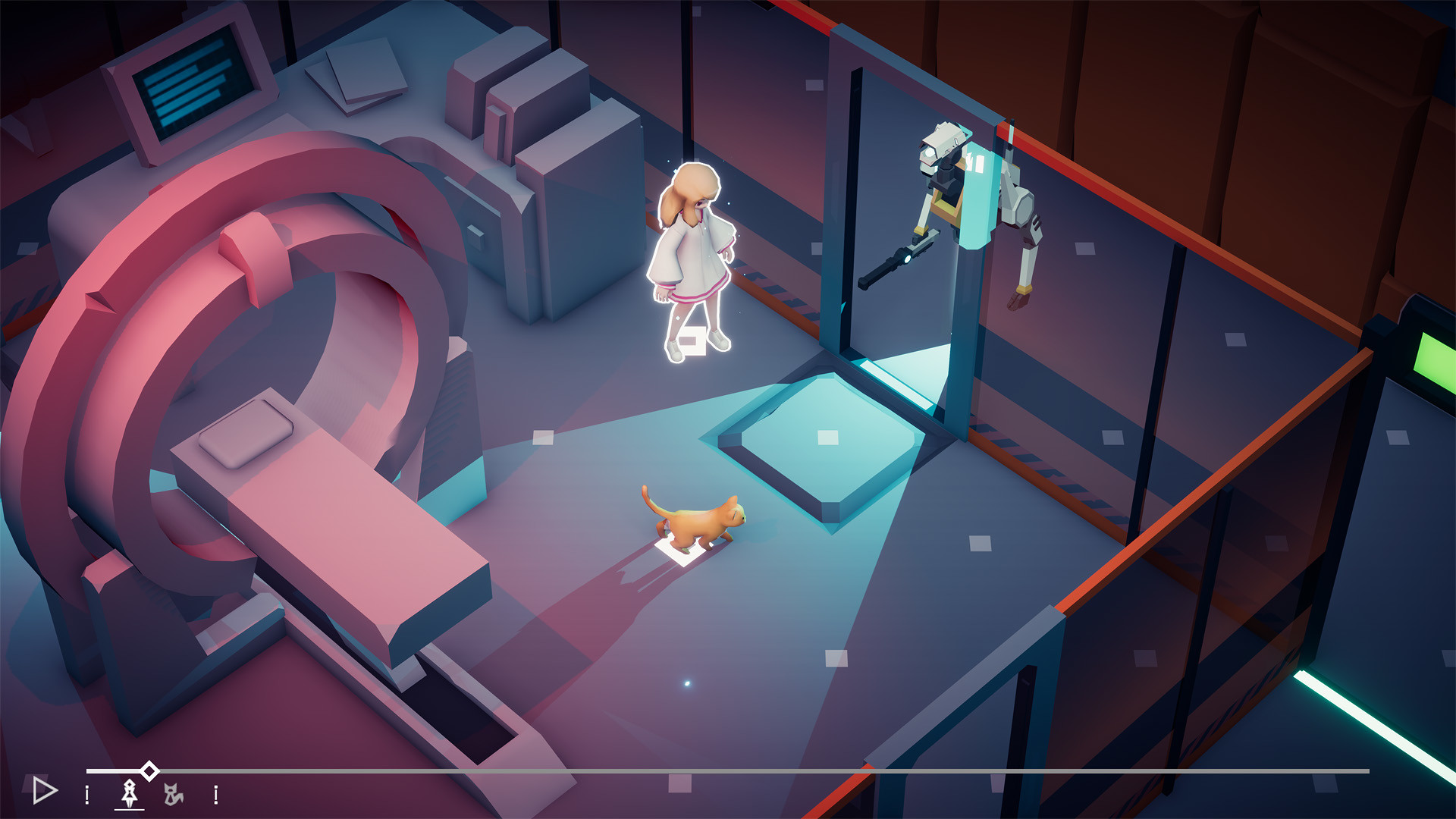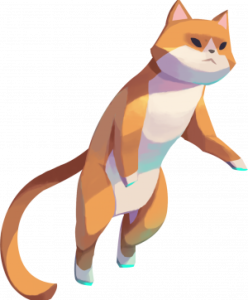Timelie is a puzzle adventure game that offers a new take on time manipulation. The game came out on PC on May 21. It’s the first title from a Thai team called Urnique Studio. While still in development, the project won Microsoft Imagine Cup both domestically and internationally.
We sat down with Parimeth Wongsatayanon, Creative Director at Urnique Studio, to discuss the team’s inaugural game development journey.
Side note: You will notice how I refer to Parimeth as James. This is because, as James explains, Thais mostly call each other by their nickname, while the first name is usually reserved for the official or legal communication. Well, I’m no lawyer, so…
Parimeth Wongsatayanon
Oleg Nesterenko, managing editor at GWO: James, what kind of gamedev scene does Thailand have?
I suppose you could say it’s developing, but in a lot of ways, it’s been in that same state for 20 years or so. Developer income here is little compared to other countries, so a lot of the most talented developers go abroad to work and never come back. So, an actual gaming developer professional is quite rare in Thailand. I also think most Thai developers are self-educated.
Also, our government didn’t really understand or support video games until quite recently, so we’ve had very little support from them for a few decades. Even investors didn’t really understand gaming, either.
So, most Thai developers were pretty much on their own for a long time. We had no budget support, and very little knowledge in terms of actual game development so finished products weren’t so great when you compared them to foreign made games. As a result, Thai gamers didn’t really support Thai games. This resulted in a lot of Thai gaming companies going out of business. I’ve seen companies come and go every year. Those that did survive usually did so because they had revenue coming in from outside the gaming market.
However, now, our government is learning and doing a lot better in terms of support developers. And, more and more investors are looking to support new projects in gaming. I feel like we’re in the first real steps of moving our industry here forward. But, sometimes I wish that this had taken place 5 or 10 years sooner. The worldwide gaming market is already so crowded and it’s still very risky for new developers.
The future, though, I think is still very bright. In the past five years a lot of universities here have started game development programs. And, today, we see more and more exciting Thai developed games releasing and that number is increasing every year.
Urnique Studio
Let’s talk history. Initially, you wanted to make a game for mobile devices. The released version of Timelie, however, is only available on Steam. How come?
It’s really a business decision. Even though the game initially started off targeted for mobile, the genre and mechanics are quite complicated and more suited towards a more hardcore gamer. So we shifted to PC as our primary platform. We would have loved for the game to be multi-platform at launch, but this is our first game. We want to minimize risk and focus on getting the game released for one platform and making it the best we can.
In 2016, you guys won Microsoft Imagine Cup first in Thailand and then internationally. What did it take for you to win?
Literally, everything. To finish the game on time, we rented a condo and lived together for five months. For me, personally, I kind of sacrificed my last year of college focused on it. I saw almost no one, except for my team members, for almost half of that year alone. To make things worse, my dog died and I lost my best friend around that time, too. It was both the highest and lowest point of my life.
Sorry to hear that. But now you had the prize money to get the production going, right?
We never planned on winning any prize money, so we never really budgeted for it. Some of the team members at that point had already gone on to other jobs at other companies. So, to be fair, our only option was to split it equally without any obligation to the studio.
Timelie’s very first prototype
In 2018, you participated in Google’s Indie Game Accelerator. Can you tell us about this experience?
It was a once-in-a-lifetime experience for me. I couldn’t bring my whole team with me at the time, which was really hard, as I’m really close to every member. It was out of my comfort zone, but it was also very valuable for me. I got a chance to improve myself as a leader.
The event itself is awesome, too, because I got a chance to meet professionals from all over the world. One guy I met made a game I used to play when I was a kid. To learn from them personally was such an invaluable opportunity. I learned a lot and made a lot of friends, as well as made so many great connections. To think that a newbie guy like me could get a chance like that, I consider it a blessing.
What was it like to finish and launch Timelie amid the COVID-19 pandemic?
It’s been crazy and I never thought it would be this difficult. Our company used to have revenue from other client projects and that was the main budget for the company. We stopped that work temporarily to have more manpower so we could finish the game on time. Then COVID-19 appeared and not only cancelled all the incoming revenue but also future projects. We almost went bankrupt. Luckily, with the help of our families, we managed to finish the game and get it launched. I admit, it’s probably not the best time to launch a game if you’re a small indie studio like us, but that’s life and we have to just keep fighting on.
Timelie has two publishers including Urnique Studio and Milk Bottle Studio. Who’s in charge of what between the two of you?
Milk Bottle Studio is our publisher in China. We publish the game ourselves elsewhere. For the funding, as I mentioned earlier, we’re self-funded through other client projects.
Timelie in 2016
What makes Timelie really stand out is its time bar mechanic. How did you come up with that idea?
The game today is really quite different than the very first version we ever made. In the first version, you manipulated time using a big slider that listed all your action as consecutive icons that you had to swipe through to use. Functionally, it was a great feature. However, it ended up being too complicated for most people and it led to players spending the first 30 minutes of playing just trying to figure out how to use it. It was our biggest selling point, but also our biggest flaw. So, we tried a number of things to try to simplify it and one day I was watching videos on YouTube and realized just how intuitive the slider feature is. So, we tried it out and it worked great.
Was the rest of the game created around that mechanic? Or did you add it later to a game prototype in the vein of Square Enix’s GO titles?
Yes, you could say we created the game around it. The early prototype version was more like Monument Valley with a timebar. Square Enix’s Go series style of gameplay came up late in the design process, but we didn’t see our game as turn-based. Those games are all about managing each turn with very simple mechanics in order to find the absolute solution, which is a very different approach compared to Timelie.
Timelie, 2020
What was your process for designing the realms?
I give credit for that to my friend, Kirk [Pongsatorn Santiwatanakul — Ed.], who is our level designer. He did all of it himself. Timelie is like the sum of all of its previous interactions. Game design was already finished, so we already knew what we can do and which mechanics we wanted to use. So, we had to plan what mechanics we’d use in each сhapter. With that, Kirk had his blueprint and he would look at those mechanics and figure out the combination of a solution he’d like players to do. Then, he’d make a level with that idea and let someone on the team try to solve it. We’d give him feedback and he’d polish it up. Sometimes he’d improve it and sometimes he’d just ditch it and start again from scratch. He’s a genius. He can come up with a new level every single day. There are a bunch of great levels that didn’t make it into the final version of the game because we didn’t have enough time.
Timelie started as University project. How has it evolved since then? You said before that there were points when the game resembled the Metal Gear Solid series and even The Last of Us.
Haha, I meant mainly story-wise. Our first version was very dialogue-heavy about a spy that infiltrates the base of an evil organization.
The funny thing is that the first version of the game, which was Metal Gear Solid-like, is the closest to the final version of the game compared to all the other versions we tried out. Even though the aesthetics are vastly different, the core gameplays share a lot of similarities.
Timelie in 2016
After our time at University, the game’s direction changed to what our team was focused on at the time. For example, the second version was made after we won the Imagine Cup, when we wanted to focus on mobile. So, we simplified the game a lot because we wanted to make it appeal to a broader audience. In other versions, we focused on maximizing the storytelling, so we designed mechanics and puzzles around that. One version was focused on a story about the relationship between two characters in a difficult situation similar to The Last of Us. But in the end, we went back to something similar to that first version because we had decided on a clear target audience and wanted to embrace the game’s potential complexity and maximize its potential.
However, I think all the ideas we tried out were really unique and I’d love to go back and explore those more some day.
Speaking of the story, there’s very little of it in the final game. Was it because you didn’t have the resources to implement a proper narrative? Or maybe you discovered this kind of game didn’t need a story?
Honestly, it’s a bit of both. For me, the game is, first and foremost, gameplay driven. Thus, when we had to redesign the game, we shifted our focus on maximizing the potential of the puzzles and minimizing our budget costs. If we made the game more dialogue heavy, we’d then have to take on the load of scriptwriting, localization, voice acting, and more. And, frankly, that’d be too much for us to handle. So, we decided to change our narrative style to be more similar to games like Shadow of the Colossus, Journey, Little Nightmare, and Inside. I love how those games can tell a rich, complex story without any real dialogue or traditional narrative. That also generates a lot of dialogue and speculation in their communities, which I really enjoy. So, we didn’t just remove dialogue because we’re cheap! We did it because we think this type of narrative works best for a game like Timelie. And, so far we’ve been loving the theories and speculation from our players.
Timelie, 2020
If you could rewind time, what would have done differently during the production process?
I love this question! I’d say two things.
First, sound design. We only got to the sound design towards the middle/late period of development. It’s usually an easy thing to add into a game, but for our game, it wasn’t such an easy thing to do. To make those early videos of the game we had to manually add sounds effects because our sound system wasn’t working yet.
Secondly, I’d say the level creation process. If we had done it right, we could have had more puzzles in the game. We only found a good solution later in development, so we didn’t have enough time to get all the levels into the game that we wanted. If we could rewind time, we’d have at least 10 more added into the final version of the game and maybe even a new enemy type.
What’s next for Urnique Studio?
We’re still focused on Timelie. We want to bring the game to a broader audience on other platforms. And we participate in our community with our players and fans on a regular basis. We’re excited to keep showing the world what we can do and what kind of game we can bring to the market.
Thanks, James! Good luck with porting Timelie and look forward to your future projects!




